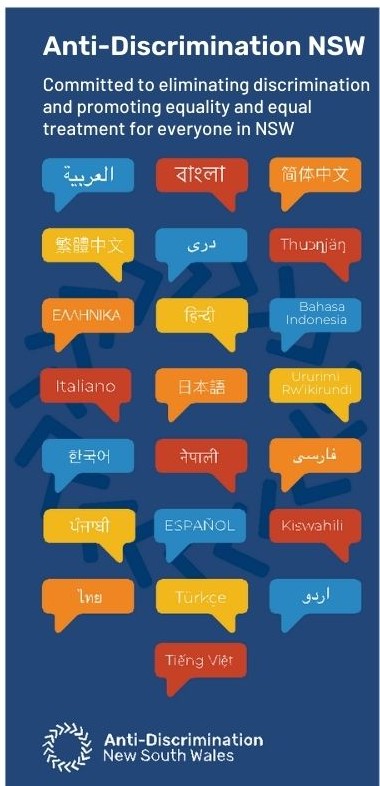Published 21 June 2023
The State’s anti-discrimination authority, Anti-Discrimination NSW, has today launched a new multilingual brochure containing key information about its services in 22 community languages.
“NSW is Australia’s most culturally diverse state with 2.2 million people speaking a language other than English at home.” President of Anti-Discrimination NSW, Helen McKenzie, said.
“For many people from new and emerging communities in NSW, English could be their second or third language, and they may have difficulty navigating our local services and understanding the laws and their rights.
We are committed to promoting equality and equal treatment for everyone in NSW and want to ensure that everyone in NSW has access to our services".

The brochure was launched at an Anti-Discrimination NSW Refugee Week event hosted by journalist and TV presenter Jan Fran and featured guest speakers Adama Kamara from the Refugee Council of Australia and Thang Ngo from Multicultural NSW.
Anti-Discrimination NSW is encouraging stakeholders, community groups and leaders to help share the new multilingual brochure and to visit their website for more translated information and complaint forms in these languages.
Enquiries and complaints to Anti-Discrimination NSW are free and confidential. Complaints can be lodged in any language. Visit the Anti-Discrimination NSW website for in-language information.
Anti-Discrimination NSW can be contacted on 1800 670 812 or via antidiscrimination.nsw.gov.au.
Last updated: